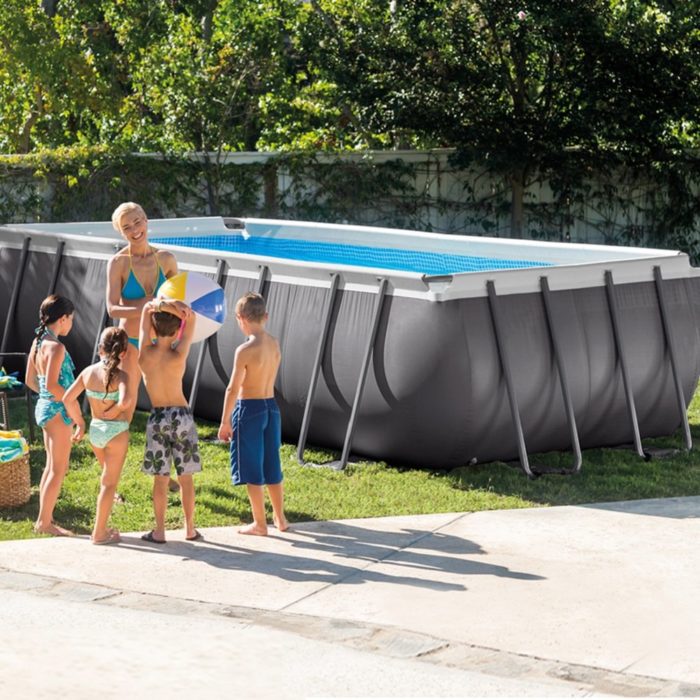Above-ground pools refer to all pools that are not buried. A favorite with young and old alike during heatwaves, they are easily dismantled and stored in a garage for the winter. Their quick assembly and significantly lower price than in-ground pools are convincing more and more French people to equip themselves to cool off, have fun, and frolic in the sun without leaving their gardens.

With so many options available, it’s important to clearly define your needs before taking the plunge. Whether self-supporting or tubular, each offers specific advantages, which we’ve listed in the first two paragraphs of this article. In the final section, we’ll guide you through your choice by summarizing the criteria to consider when purchasing. Cool sunbathing is just around the corner!
The self-supporting swimming pool
Self-supporting pools work on the same principle as small inflatable children’s pools. After inflating the structure, simply fill it with water and you’re done! With no metal structures, the water pressure on the walls gives the pool its shape. When disassembling, simply empty it and deflate it to store it away from the elements until the next nice weather.
Its buyers particularly appreciate its ease of use, which facilitates quick assembly. In addition, its simple and economical design allows it to be very low-cost, ensuring everyone can enjoy the joys of swimming without breaking the bank. Unlike small inflatable pools, it is equipped with a filtration system that helps maintain good water quality over long periods.
The tubular swimming pool
To choose the right tubular pool, follow the link! But first, a few explanations. The tubular pool is structured by a steel frame on which a PVC pocket is fixed. The metal rods easily clip together and maintain the silhouette of the pool while ensuring greater solidity than self-supporting pools. The PVC fabric, thinner and more resistant than inflatable tubes, allows greater freedom of action for the occupants inside the pool.
These materials also allow for greater depth and a larger surface area. Round or rectangular, tubular pools can be used for relaxation or for introducing children to swimming. However, even if assembly and disassembly remain simple, the budget is slightly higher than for a self-supporting pool.
Choosing an above-ground pool based on intended use
So, should you choose a freestanding or tubular pool? Your choice should be guided primarily by how you plan to use it. If your goal is to sunbathe or simply cool off, a freestanding pool will do the job. Its reduced depth is also safe for young children, who should not be left unattended in the pool. For young children’s first dips or for group play, it may be worth investing in a tubular pool, which is more durable and larger.
Also consider the space available in your garden. It’s important to keep enough space to move around the pool. Their round shape makes them easier to fit into smaller spaces. Finally, consider the type of ground you’re using. Above-ground pools are more fragile and require a very flat surface to prevent accidents.
